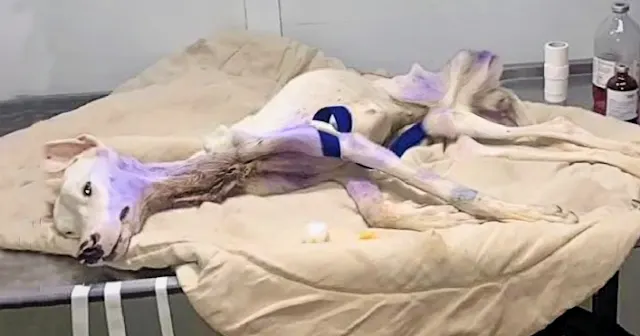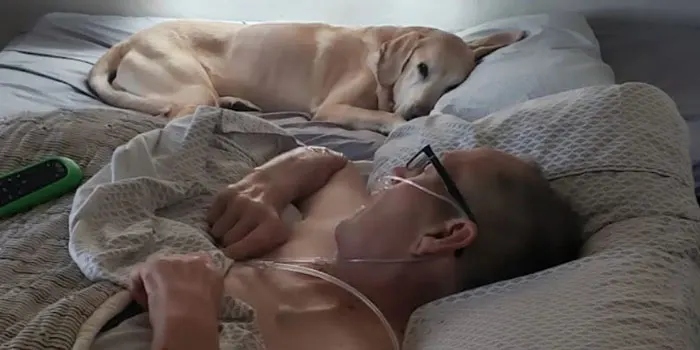Employees at shelters frequently experience bewilderment and sadness when an owner surrenders a pet, especially if it has been the pet for many years. This was the case recently when a dog that had been at a nearby shelter for seven years was brought in, leaving staff personnel perplexed by the owner’s reasoning. This heartbreaking scenario highlights the complicated feelings and difficulties that come with being an animal lover and a shelter employee.
Max, the medium-sized mixed breed dog in question, had been Sarah’s favourite pet ever since he was a puppy. Max had grown to be a vital part of Sarah’s life over the years, offering her consolation and happiness at several turning points. The staff at the shelter found it hard to believe that someone would give up a pet they had spent so much time with.

Sarah was composed but unwavering when she got to the shelter. She clarified that although she had a great deal of love for Max, she was forced to let him go because of a “change in lifestyle” that prevented her from providing for him. Sarah, a single mother who had just taken on a rigorous new job and gone through a lot of life upheavals, said she was finding it difficult to strike a balance between her demands for Max and her obligations at work and at home.
Even though her explanation seemed sincere, the shelter staff found it confusing. Sarah had talked about how happy Max had made her feel and how devoted he had been. Nevertheless, she gave pragmatic reasons for her decision, including her recent move to a new house without a garden and her long work hours. She clarified that these circumstances had put her in a position where she was unable to provide Max the space, exercise, and care he needed.

The thought of rehoming a dog after seven years is unfathomable for many workers at shelters. They are familiar with the difficult and sometimes tragic choices that pet owners have to make. They were left feeling conflicted, though, because Sarah’s explanation focused more on practical concerns and work-life balance than it did on Max’s maltreatment or neglect. They were aware of how crucial it was to act in the animal’s best interest, but they were also saddened by the thought that Max and his owner would no longer have a lasting relationship.
Sarah took her decision with great thought and sadness in her heart. She expressed her hopes that Max would find a new home where he could continue to receive the love and care he needed, acknowledging the emotional difficulty of leaving him behind. Her good intentions notwithstanding, the staff found themselves wondering about the wider ramifications of such circumstances. They frequently deal with similar situations when tough decisions about pet care are necessitated by personal circumstances, and these decisions can carry a great deal of emotional weight.

As soon as possible, the shelter staff got to work making sure Max got the care he needed during the move. They gave him a cosy place to live and started evaluating his requirements to locate him a new, suitable residence. Max’s entrance was met with immediate shock and sadness, but the team never wavered in their commitment to provide the finest care possible.
Max’s tale brings to light a more general problem in animal welfare: striking a balance between one’s own needs and those of one’s pets. It acts as a reminder of the value of local support networks and other tools that assist pet owners in resolving difficult circumstances. There are methods to relieve some of the stresses that result in tough choices, whether it’s through temporary foster care, pet-sitting services, or financial support.

The animals under the shelter’s care are always given first attention. Even though Sarah’s explanation for parting ways with Max was unexpected and depressing, it serves as a reminder of the importance of empathy and comprehension in the animal rescue industry. Whatever brought the pet to the shelter, the intention is to provide all of them a shot at a happy and healthy life. It is hoped that once Max gets used to his new surroundings, he will quickly find a devoted family who will value him just as much as Sarah did.
This heartbreaking scenario is a potent reminder of the difficulties associated with pet ownership and rescue. It provides as further evidence that all animals are deserving of compassion and that acting in their best interests is a step towards securing their welfare.




